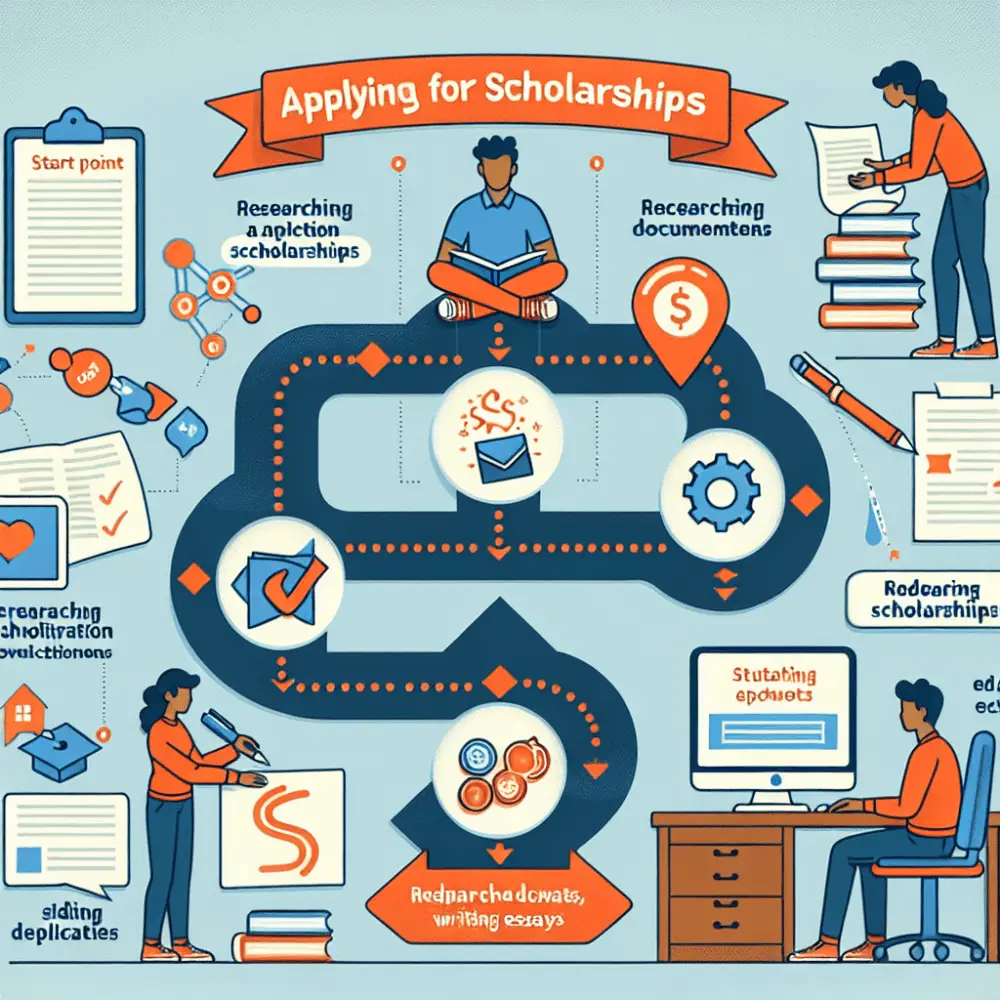
The path to higher education can often appear daunting, particularly if you’re the first in your family to attend college. However, a wealth of scholarships for first-generation students can provide the financial support needed to ease this journey. This article will guide you through understanding the types of scholarships available, how to find them, and tips on navigating the application process.
Finding the Right Scholarships
The first step in navigating the application process is identifying the right scholarships. Some scholarships are designed specifically for first-generation college students. Various organizations, educational institutions, and private donors understand the unique challenges faced by these students and offer scholarships to support them.
Types of Scholarships
Scholarships for first-generation students come in many forms. Some are merit-based, rewarding outstanding academic achievements, extracurricular activities, or leadership roles. Others are need-based, considering the student’s financial situation. Still, others might be specifically targeted toward certain demographics, fields of study, or geographic locations.
One notable example is the Full UNS Scholarship for Latinos in Indonesia. This scholarship provides funding for Latino students to study at Universitas Sebelas Maret (UNS) in Indonesia. It aims to bridge cultural gaps and encourage international learning experiences. Another impressive opportunity is the Fully Funded Peterhouse Graduate Studentships Competition for International Students in UK, which offers financial assistance to first-generation students pursuing graduate studies at Peterhouse College, Cambridge.
The Application Process
Navigating the scholarship application process can be overwhelming, but breaking it down into manageable steps can make it more approachable.
Step 1: Research and Shortlist
Begin by researching scholarships thoroughly. Use online databases, consult your school’s guidance counselor, and visit university financial aid offices. Look for scholarships specifically for first-generation students, like those mentioned earlier.
Step 2: Understand the Requirements
Each scholarship will have its own set of requirements. Carefully read through these to ensure you meet the eligibility criteria. Requirements might include academic transcripts, letters of recommendation, personal essays, and proof of financial need.
Step 3: Gather Necessary Documents
Start gathering all the documents required for the application. This might include your high school transcripts, standardized test scores, recommendation letters, and personal identification. Some scholarships might also ask for proof of your first-generation status, such as a letter from your school confirming that neither of your parents holds a college degree.
Step 4: Write Personal Essays
Many scholarships require personal essays. This is your opportunity to share your story, explain why you deserve the scholarship, and detail how it will impact your educational journey. Be honest, reflective, and proofread your essays thoroughly.
Here’s a tip: if multiple scholarships require essays, see if you can reuse or slightly modify the same essay to save time.
Step 5: Submit Applications Early
Aim to submit your applications well before the deadline. This affords you extra time to rectify any last-minute issues. Keep a checklist for each scholarship to ensure you’ve completed all the necessary steps.
Overcoming Common Challenges
First-generation students might face unique challenges when applying for scholarships. Understanding these challenges and knowing how to address them can improve your chances of success.
Financial Documentation
Providing financial documentation can sometimes be tricky. If you’re uncertain which documents to submit or how to obtain them, reach out to your school’s financial aid office. They often have experience in guiding students through the process.
Writing Essays
Writing compelling essays can be daunting, especially if you’re not used to expressing personal experiences on paper. Seek feedback from teachers, mentors, or peers. They can provide valuable insights and help you refine your essay.
Finding Recommendations
Securing letters of recommendation can be challenging, particularly if you’re not sure whom to ask. Teachers, school counselors, and community leaders who know you well can write strong, personalized recommendations. Provide them with enough time to write and offer them context about the scholarship and why you’re applying.
Examples of Scholarships for First-Generation Students
Let’s dive into a few specific scholarships that cater specifically to first-generation students.
COBELL Scholarship
The COBELL Scholarship is designed for Native American and Alaska Native students who are first-generation college attendees. It offers financial support and mentoring to help students navigate college life successfully.
The Gates Scholarship
The Gates Scholarship is a highly selective, last-dollar scholarship for exceptional, Pell-eligible, minority high school seniors. The scholarship aims to support students through their entire college career, eliminating financial barriers.
First Generation Matching Grant Program
This program is available in the state of Florida for undergraduate students. It requires that the applicant demonstrates financial need and is a first-generation college student, offering varying amounts depending on the institution and available funding.
QuestBridge National College Match
The QuestBridge National College Match is a scholarship and college admission program that helps high-achieving, low-income students gain admission to top colleges with full, four-year scholarships.
Full UNS Scholarship for Latinos in Indonesia
The Full UNS Scholarship targets Latino students who wish to study in Indonesia. It’s a unique exchange program that covers tuition fees, living expenses, and provides a monthly stipend.
Fully Funded Peterhouse Graduate Studentships Competition for International Students in UK
Peterhouse College offers a fully funded competition aimed at both domestic and international first-generation graduate students. This opportunity allows students from around the world to pursue postgraduate degrees at one of the world’s leading academic institutions.
Tips for Success
Here are some additional tips that can help you succeed in securing scholarships:
Start Early
Begin your scholarship search as early as possible. Some scholarships have deadlines as early as one year before college starts.
Stay Organized
Keep track of deadlines, requirements, and submitted applications. Use spreadsheets, calendars, or scholarship management apps to stay organized.
Seek Help
Don’t hesitate to seek help from school counselors, teachers, or mentors. They can provide guidance and resources to strengthen your application.
Be Persistent
Applying for scholarships can be time-consuming and sometimes discouraging. However, persistence is key. Apply to as many scholarships as you’re eligible for to increase your chances of receiving one.
Tailor Your Applications
Instead of sending generic applications, take the time to tailor each one to the specific scholarship. Highlight the aspects of your background, achievements, and goals that align with what the scholarship committee is looking for.
Conclusion
Navigating the scholarship application process as a first-generation student can be challenging, but the potential rewards make it worth the effort. By understanding the types of scholarships available, staying organized, and seeking support, you can significantly ease your financial burden and pave the way for a successful college journey. Whether pursuing a Full UNS Scholarship for Latinos in Indonesia or competing in the Fully Funded Peterhouse Graduate Studentships Competition for International Students in UK, taking the first step towards applying can make all the difference in achieving your educational aspirations.

















